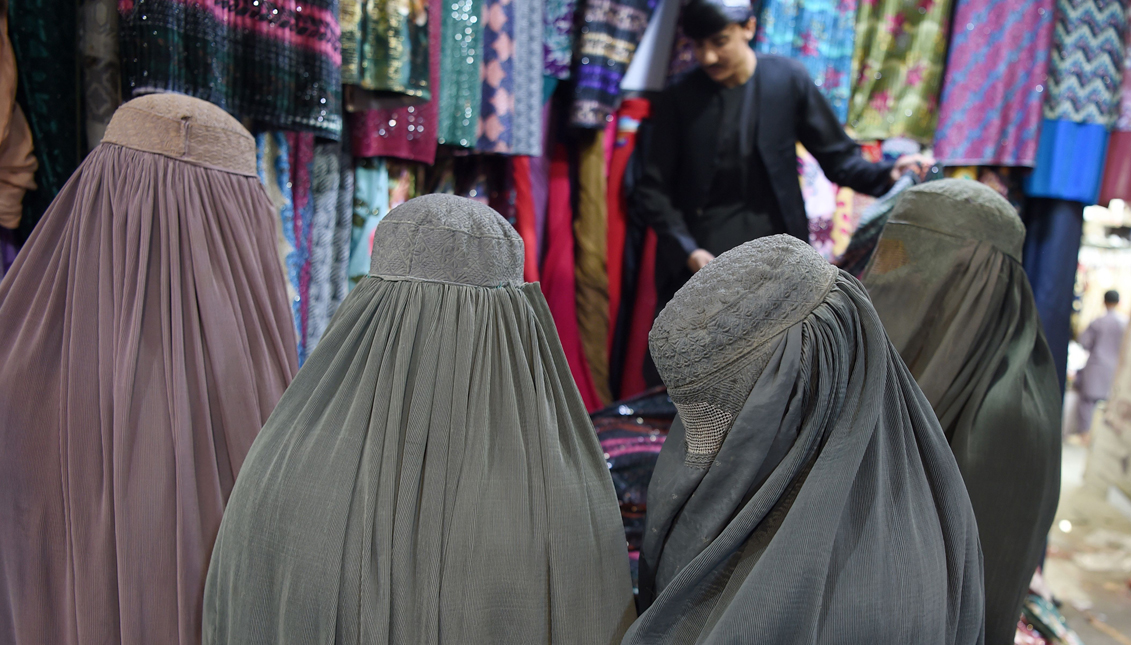
In some areas of Afghanistan, women have had to revert to wearing the burqa. Photo: Getty Images
Fear grows for the situation of women in Afghanistan
With the Taliban takeover of Afghanistan, women fear the possible restrictions and punishments that will be imposed against them.
Two days after the takeover of Afghanistan by the Taliban, very few women have dared to go out on the streets because of the fear of punishment or reprisals due to the extremist rules of the armed group that now controls the government.
The memory of the 90s, when the Taliban regime ruled the streets of the Asian country, is still vivid in the minds of Afghans.
At the time, women were forbidden to go to school and work outside their homes, except for a few jobs related to agriculture in rural areas or in health positions. In addition, any woman who left her home without her 'mahram' (legal guardian such as father, brother or husband), could be whipped, beaten or insulted.
Fearing a repetition of these scenes, many women decided to start burning their university degrees, and discarding any kind of evidence that could link them to the academic environment. They remain sheltered in their homes to this day, waiting for the Taliban regime to fulfill its promise to be more flexible than two decades ago.
Suhail Shaheen, a spokesman for the Taliban, said that "women can have access to education and work" and that "girls can continue studying" in the different schools throughout the country.
Study is not the only restriction women fear. In the 1990s, the forced wearing of the burqa, a garment that covers women from head to toe, including the eyes covered behind a mesh, became mandatory. It also forbidden for women to use makeup, nail polish and wear high heels because even the sound of stomping could excite passing men.
Women who showed one or two centimeters of skin under the burqa were also flogged and could be stoned to death.
Faced with a society of women who were already living under Western norms, such as allowing only headscarves, university education and full access to health care, the arrival of the Taliban has shrouded their future in fear and uncertainty.
Malala Yousafzai, a Nobel Peace Prize and activist who survived an assassination attempt by the Taliban in Pakistan, said in an essay published in the New York Times that "like many women, she fears for her sisters in Afghanistan."
In addition, Malala mentioned that she spoke to several activists who "feared a return to exclusively religious education, which would strip children of the knowledge they need to fulfill their dreams and leave their country without doctors, engineers and scientists in the future."
Women, who have preferred to withhold their names to avoid reprisals, published a letter from Herat (ancient city founded by Alexander the Great) that told of their fear of living in their country under the new regime.
"I prefer that my daughters die in a dignified way before they fall into their hands," wrote one of the women under the pseudonym Sara.
Another woman who signs under the name Roya claimed to be a student at the University of Herat, and said that "the only memory the Taliban leave behind is their violence and inhuman treatment of women. They will turn all our daily life into suffering again."
A Euronews journalist also said she was very sad and feared for her safety.
"I cry with all the pain in my heart for Afghan women," she said.
The woman also stated anonymously that she feared Afghans working in media would be killed because "the Taliban hate them because they are symbols of the last twenty years in Afghanistan."
It is not clear yet whether the country will undergo changes as radical as in the 90s, but a Taliban official who asked not to be identified told the BBC that women will be allowed to work during his government under certain conditions, “where they choose,” but within the limits of Islamic law.
Those jobs could be in government, private sector, commerce and other areas. However, women in the country don't want to take the risk.










LEAVE A COMMENT: